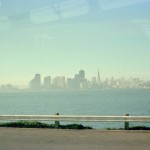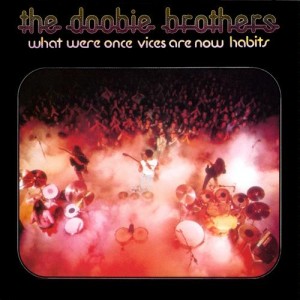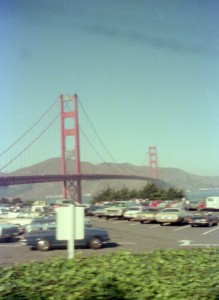Bat’s Squeak
Theme Songs Page | Previous Theme Song | Next Theme Song
Bat’s Squeak
Black Water, by Patrick Simmons, Performed by The Doobie Brothers (1974), Encountered 1975
Buy it here | View it here | Lyrics here | Sheet music here
What was wrong with this picture?, I ask, as I contemplate the events I am about to discuss. If you had asked me at the time, I would have said, sincerely enough, that I was enjoying one of the happiest moments in the life of my new family, career difficulties notwithstanding. We had a darling daughter and a house, and I was working, at least a little, teaching one course of composition at Goucher College as adjunct faculty. I had a scholarly book coming out. Journals were publishing my articles. Surely my life was, if not a completely solved problem, at least a work in satisfactory progress.
Yet what happened happened. And it showed what it showed. And surely it showed, among other things, that the work of my life may not have been in such satisfactory progress.
Meat Market
I had to go to MLA, the annual meeting of the Modern Language Association, held each year in the week between Christmas and New Year’s. Though there was lots of reading of papers and laying down and sniffing of academic spoor, the significance for me was that it served as the the main marketplace for the employment of new English Ph.D.s. Once you knew when your doctorate would finish, you knew how to time your attendance. And I had known by the beginning of the 1974-75 academic year that I would receive mine at the end of it. That meant that my first MLA would be in 1974, and the second, if there had to be one, in 1975.
And, as it worked out, there had to be one. The 1974 meeting, at the New York Hilton, had yielded nothing. While I no longer can reconstruct and contrast what I did in the first year versus what I did in the second, I know that over two job seasons I sent out over 450 resumes, to colleges and universities in all 50 states, in pursuit of the jobs listed in an MLA circular; out of those I netted 14 interviews, two of which were “cattle calls” – simultaneous interviews with about a dozen candidates. And out of the remaining 12 interviews, only two seemed like serious prospects, one each year. The main prospect of 1974 was North Carolina State, and the great hope of 1975 was the University of New Mexico at Las Cruces
It Was All Dixie To Me
In any event, the Doobie Brothers’ song Black Water got all mixed up in my mind with the North Carolina State job, and then, by extension, with the whole desperate process. If you listen to the song, it certainly isn’t about Raleigh; it’s pretty clearly a New Orleans song. But it was Southern. To Northern young men of my generation, anything from the old Confederacy was foreign enough so you could kind of lump it together as Not The North. And what the lyrics of Black Water tell you is that the South is a mysterious, pulsing, lively place.
Well, if it rains, I don’t care Don’t make no difference to me Just take that street car that’s goin’ up town Yeah, I’d like to hear some funky Dixieland And dance a honky tonk And I’ll be buyin’ ev’rybody drinks all ‘roun’I was ever so ready to get out of Baltimore and have some adventures, even in the Confederacy. Or, as of 1975, the great Southwest.
The Problem With Reassurance
The only problem was, I had to get invited. And it began to look as if my last plausible set of chances at getting that invitation all came through MLA 1975 or not at all. I told myself that surely it would be all right, that surely someone as well qualified as I would make it through. I told myself that, but self-reassurance, like all reassurance, is flawed because no one actually knows the future. And I wasn’t taking into proper account the potential for sheer bad luck that could so easily synergize with the lousy job market.
For it was a lousy job market, a very, very lousy job market. After an entire generation of smooth riding, the great English Lit Ph.D. apparatus, fueled by postwar defense appropriations, had hit a stretch of washboard road. And my professors were in denial, and so was I.
En Famille
I have said that MLA occurred the week between Christmas and New Year’s. This ratcheted the discomfort up a little, because Christmases in my family had to be spent en famille, and since mine (as opposed to my wife’s) was the only famille that celebrated Christmas, it followed that Christmas would be spent with mine. This was the ninth time since I’d left for college that I’d made this particular holiday pilgrimage, but the first with both a wife and a baby in tow. The first few Christmases I came back, I was flooded with anticipatory longing. But that feeling was largely a thing of the past by 1975.[1]
I wish I had the descriptive gifts to make entirely plain why the holidays had become so difficult, but I guess this will have to do: my mom could not gracefully accept the limits between us that should naturally succeed the closeness of a parent and a young child. This problem had become acute with the arrival of a wife who would naturally and correctly feel that she now had the greatest claim on my intimacy, and the advent of a baby who would in the normal course of things take up a lot of my time, effort, and emotional capital. My mother was demoted to third place in this ranking, and she would not always acquiesce in this. S., then my wife, would later comment to my second wife that my mother had spoiled many Christmases for S. during our years together. This was close to the beginning of that ordeal for her. And I know I did not appreciate what I was putting her through as much as I should, being a) callow, b) stuck with divided loyalties, and c) human. But I wasn’t entirely blind to it either.
I believe S. and my daughter stayed behind visiting in Ann Arbor while I flew off.[2] Finances were tight and we were frugal.
The Fun Of It
So, full of resolve to locate that elusive job, I boarded a plane at Detroit Metro and flew west. And that’s where it happened. Sitting next to me was an attractive African American businesswoman maybe two or three years older than I, clearly extremely pleased by her success to that point, a success signified by a condominium she owned, simply for the fun of it, in San Francisco. It very soon became apparent that she was checking me out for the role of “the fun of it.”
She let me know at once that she was just going out there to relax. I told her I was out there to go to a meeting. She asked if I were planning to do anything besides the meeting, and I told her truthfully that I was hoping to do a little sightseeing (not having been in the town since I was four), but would have to fit it around my convention-going activities. She suggested we could do some sightseeing together, and added that it would be a shame if I were to travel all the way to this beautiful city, spend the whole time indoors, and then travel home again.
As the trip went on, she pressed me at least to visit the condo, which she assured me was close to a BART station, from which I could easily get to my hotel on Union Square. I reflected that I had no definite commitments that afternoon, apart from calling up and confirming a couple of interviews for the following day, the work of a few minutes if everything went right. So, after much urging, I agreed to visit her place en route to my hotel.
Arm To Arm
There’s a lot I don’t remember about that day, but I do remember ending up at her apartment in the early afternoon, on the second or third floor of a new building on a hill, looking out over some pleasant watery prospect. And I remember standing at the railing of her balcony, staring out at the view. And I remember her standing very near to me, our forearms touching. Clearly, the way things were going …
But I wasn’t a good Catholic boy for nothing, at least not then. As attracted as I obviously was, and as flattered as could be by this flirtation, I kept telling myself: If you fail to make that call to the interviewer because you’re here with this woman, and then lose out on the job because you can’t find the interview, you will never forgive yourself. And this reflection was particularly agonizing because it wasn’t as if my missing the opportunity were guaranteed or even likely if I stayed; it was merely somewhat more possible. But considering all the years of effort I had put into getting to this last-ditch opportunity, I had to protect it, even if it meant –
Well, what did it mean? I wasn’t giving up going to go to bed with this lady, was I? I was a happily married man, after all. That wasn’t what happily married men did, not in my book. Having however shakily resolved on that, I began making noises about having to go, now that I’d seen her nice condo.
The Road Not Taken
Not that it was quite that neat; I think I kissed her, but not the lingering kind of kiss that signals bed – and I think I did it on the way out the door. Goodbye kisses were a little better, at least I hoped so.
She tried to make arrangements to get together the next day. I told her, truthfully, that I had to get to the hotel and see the lay of the land before I could make any plans. This clearly dissatisfied her, but she did give me her phone number.
Walking away, I wondered whether I should be depressed or relieved. The BART stop was where she said it would be, and the trip into the city was uneventful.
I checked into the hotel, I made my calls, I checked my conference schedule, and there was indeed some touristing time available, not the next day but a day or two after that. I got out the slip of paper the lady had given me, and after a few minutes of arguing with myself, dialed the number on it. But there was no answer. Evidently I had blown my last chance with the lady by not making firm arrangements before leaving. No doubt she was on her way to wherever she went to find San Franciso companionship when flirtation on the plane didn’t work. (Considering that she was in the Tales of the City town, I’m sure she had plenty of alternatives.)[3]
The Road Taken

 History will record that I did keep all of my interview appointments. It will record that did every damn thing right. Listened to papers read, scouted out the new textbooks at the booksellers’ displays, buttonholed people, did what little networking I was capable of.
History will record that I did keep all of my interview appointments. It will record that did every damn thing right. Listened to papers read, scouted out the new textbooks at the booksellers’ displays, buttonholed people, did what little networking I was capable of.
In fact, history will record that I only got away to play tourist the day the conference broke up. On the morning of Tuesday, December 30th, before heading back, I went exploring on my own. Without a rental car or any useful prior acquaintance with the city, I very sensibly put myself in the hands of the Gray Line, and got driven around in a tour bus for a couple of hours. The pictures I took were painfully amateurish, but they establish that I did see Telegraph Hill and the Golden Gate Bridge and the old Mission, and the Japanese Tea Garden and big surf on the Pacific. By then I was over mixed emotions about the lady. I was in love with my wife, and in love with San Francisco.

 I believe I returned to Ann Arbor, picked up my wife and daughter, and drove back. I could look them in the eye because “nothing had happened,” and I could sincerely tell myself that nothing had ever been going to happen. And yet part of me knew that there was no way to be so certain. Had the woman made a more direct move than letting our forearms touch, had she answered the phone when I called, what then?
I believe I returned to Ann Arbor, picked up my wife and daughter, and drove back. I could look them in the eye because “nothing had happened,” and I could sincerely tell myself that nothing had ever been going to happen. And yet part of me knew that there was no way to be so certain. Had the woman made a more direct move than letting our forearms touch, had she answered the phone when I called, what then?
Squeak
In Brideshead Revisited, Charles Ryder, the narrator, encounters his best friend’s sister Julia, and sees her in a new light, especially when Julia asks him to light her cigarette. “[A]s I took the cigarette from my lips and put it in hers, I caught a thin bat’s squeak of sexuality, inaudible to any but me.” This experience was my own bat’s squeak. I might have experienced temptation in a way that was invisible to anyone else, but I knew now that I had a susceptibility. I might never act on it, but I had it.
What I did not have, it soon emerged, was a job. By the following January 28th, I knew I was not getting the job at Las Cruces. By the end of March, I knew I was not going to be getting an academic job anywhere. I can vividly recall the moment I understood without qualification that there was no English Department berth for me anywhere. I was standing in the kitchen of our house on Guilford Avenue, and I burst into tears, crying on S.’s shoulder. This was no matter of a few sobs and a few teardrops. This was wrenching and long-lasting. I don’t think I cried like that again until my mother’s death many years thence. I wrote to a friend at about the same time that I had been “knocked on my ass.”
When you’re knocked on your ass, of course, there is ultimately only one thing to do, and that is to get up. And that, as the sequel will recount, is what I did.
[1] See, for instance, my discussion here.
[2] I believe they waited behind in Ann Arbor for me to fly back and drive back to Baltimore with them, but I am a little vague on this point.
[3] The series started serializing in the San Francisco Chronicle the very next year, and while everyone associates Tales of the City with the picture of San Francisco’s hyperactive gay scene, it’s worth remembering that the first references to dating and sex in the whole series are all about opportunities available to straight Mary Ann Singleton:
Mary Ann turned to an article entitled “Coed Baths—Welcome to the World’s Cleanest Orgy.” It was illustrated by a photograph of intermingling legs, breasts and buttocks. “Charming.” “It’s down on Valencia Street. You pays your money and you takes your chances.” “You’ve been there?” “No, but I wouldn’t rule it out.”Copyright (c) Jack L. B. Gohn, except for album cover artwork and quoted prose and lyrics
Theme Songs Page | Previous Theme Song | Next Theme Song


